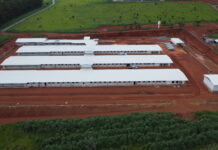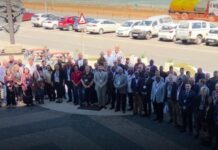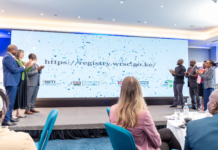Farmers in both Africa and Europe urgently need government support to increase their use of digital tools, in light of increasing environmental and economic pressures facing the agriculture sector, a survey conducted by the Savanta ComRes shows.
The survey was commissioned by Vodafone Group.
The report shows that over 600 farmers from 13 countries in Europe and Africa were asked about their current attitudes towards digitalising their farms, environmental challenges faced and current geopolitical and societal pressures impacting supply chains and rising equipment and materials costs.
Climate change is top of the list of threats facing farmers in Europe and Africa.
“Nearly all farmers surveyed in Europe (97%) say climate change is impacting the financial viability of their farms to an extent. Farmers in Africa are similarly concerned, with 93% feeling the same way. Other threats cited by farmers include fuel and energy costs – impacted by the war in Ukraine – as well as low market prices for crops and livestock, and lack of support from the public sector,” the survey reveals.
However, the farmers felt that technology and connectivity were powerful tools when it came to addressing these challenges.
“It is therefore encouraging to see the survey reveal farmers are already using digital tools to reduce fertiliser use, water use, and to improve soil health. What’s more, over two-thirds of farmers in Europe (88%) and Africa (89%) feel that digital technologies can help farming succeed in the future.
“Use of digital farming technology will increase according to results, with farmers saying they’re willing to invest more in this area to help them combat issues like climate change. Almost all farmers (96% in Europe and 94% in Africa) plan to invest more in digital tools in the next 12 months.”
According to the research, farmers continue to mitigate the impact of these crises and they are turning to smart agriculture solutions.
“Smart tools used on farms can help farmers elevate costs, and reduce the use of energy, fertiliser and water, which is critical at this time. Technologies include drones, vehicle trackers and autonomous vehicles, as well as artificial intelligence, blockchain technology and smartphone applications, enabling the monitoring of weather and soil conditions, as well as costs and market prices. Smart watering, irrigation and crop feeding solutions also help drive efficiencies and increase the visibility of key farming data for this community.”
Joakim Reiter, the chief external and corporate affairs officer at Vodafone Group, said: “This survey should read as a plea for help from farmers who are facing unprecedented challenges. It’s vital that both the private and public sectors work together to provide this community with access to the digital technologies, information and training they require to develop their practices. We must transform restrictive regulatory policies and practices around digital, cloud and data services, and create an enabling environment that supports innovations like cloud computing. By doing so, farmers will have the opportunity to access the critical agricultural insights they need to farm more effectively.”
Vinod Kumar, the chief executive of Vodafone Business, added: “From working with farmers across Europe and Africa over the past eight years, we’ve come to understand the harsh realities of how the challenges echoed in the survey are threatening the future of not only their farms but the entire industry.
“While it is positive to see this community already embracing digital solutions, more must be done to guarantee that Europe and Africa fully embrace precision agriculture. By helping farmers to digitise their operations, we’re helping to reduce the barriers preventing faster connectivity roll-out, which in turn helps farmers alleviate costs and increase yields to ensure a more robust and sustainable future for the agriculture industry.”








